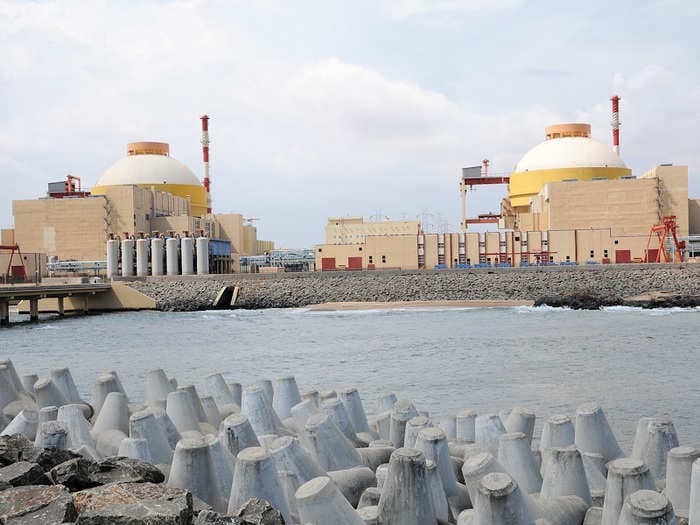- India's nuclear power plant in Kudankulam was breached by North Korean hackers looking for information on thorium-based reactors — an alternative to using uranium.
- India is currently the leader in commercialising the use of thorium as a safer and more efficient alternative.
- Use of thorium-based reactors would make North Korea's use of nuclear power less threatening since, unlike uranium, it does not produce plutonium needed to make weapons.
The hackers had the ability to cause damage, but chose to retrieve data instead.
The hackers, speculated to be the $4 — a cyber arm of the North Korean government — were spying on the nuclear power plant to find out how India was developing its thorium technology, according to the Indian government and an analysis by cybersecurity firm Issue Makers Lab.
India's lead on Thorium
Thorium can be used to fuel nuclear reactors, just like uranium. Only, it's $4 than its counterpart. And since it has a higher concentration than uranium — it also costs less and yields less damage to the environment.
India $4 when it comes to commercialising the use of thorium. It aims to fuel 30% of the country's electricity demand using thorium-based reactors by 2050.
Even their point of access was an expert on thorium-based reactors, S.A. Bhardwaj — a former chairman of the Atomic Energy Regulatory Board (AERB).
Thorium can't be used to build bombs
One of the key benefits of using thorium over uranium is that thorium reactors don't produce plutonium — the element needed to make a nuke.
If North Korea were to use thorium instead of uranium, the world would no longer speculate that its use nuclear power is being used to develop weapons.
It's also possible to use thorium to breed uranium. This type of reaction also will not create plutonium while making uranium more efficient for energy production.
In the past, North Korean hackers have breached the Korea Hydro and Nuclear Power (KHNP) and the Belgium nuclear research center, SCK.CEN.
They also attacked scholars around the world who published papers on
As of today, there aren't any operational thorium reactors in the world, which makes the information all the more valuable since India is hoping to be the first.
See also:
$4
$4
$4
